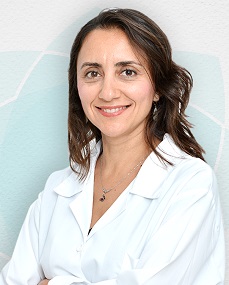
Dr. Suat Günsel University of Kyrenia Hospital Infectious Diseases and Clinical Microbiology Specialist Emine Ünal Evren MD. who stated that malaria is an infectious disease caused by the plasmodium parasite transferred by the anopheles mosquitoes, also recorded that according to the old Egyptian Chinese and Hindu resources this disease that dates back to 1700 B.C. played an important role in the collapse of civilisations. Evren stated that this disease which was very common in Turkey after the Turkish War of Independence, has decreased with the precautions that were taken during the post war period.
Emine Ünal Evren MD., recorded the following in her statement made in regard to the ‘’25th of April World Malaria Day’’:
According to the World Health Organisation (WHO) database, malaria is still an important health risk in 100 countries. 2.5 billion people are at risk of being infected with malaria and there are 300-500 million new cases of malaria per year. Malaria causes 1-2.7 million deaths per year and 70% of these deaths are in children.
This disease occurs more frequently in Africa, Southeast Asia and Middle East. Malaria kills a child every 2 minutes in Africa. This disease which is most commonly seen in the South-eastern Anatolia region of Turkey has reduced through successful control precautions.
THE FEVER THAT OCCURS AT EQUAL INTERVALS CHANGES ACCORDING TO THE TYPE OF PARASYTE
There are 5 different types of plasmodium that cause diseases in humans. Due to the fact that the mosquitoes that carry the parasite need two weeks and an atmosphere of 24-27 degrees centigrade and 60-80% humidity to grow, this infection occurs in certain specific areas and seasons.
Malaria symptoms begin within 2 weeks after being bitten by an infected mosquito. Periodic fever is the
most defining symptom of malaria. This is generally accompanied by fatigue, headache, nausea, vomiting and shaking. The temperature that occurs at equal intervals, changes depending on the type of parasite, it can occur either every 48 hours or every 72 hours. Cases that cannot be treated may cause deathly complications such as; loss of consciousess due to brain damage, kidney failure and pulmonary oedema.
Malaria is a disease that can be diagnosed and treated. So in differential diagnosis and especially in the diagnosis of every patient who has traveled to the endemic area malaria sould be considered.
THOSE TRAVELLING TO RISKY AREAS MUST OBTAIN A SPECIALIST VIEW ON THE MEDICATION THAT THEY MUST USE
The WHO designated the 25th of April as the World Malaria Day in 2001, in order to increase awareness in this area. The ‘’Global Technical Strategy for Malaria’’ that was adopted in 2015, aims for a world without malaria.
Reducing mosquito breeding sites such as pools of stagnant water and draining swamps are very important for the environmental battle against malaria. Protective medication must also be taken when travelling to areas where this disease is common. Before travelling to Africa, South America and Far-East countries, we must gain information on the risks of the region that we are travelling to. People who are going to travel to risky areas, must obtain specialist views about the medication that they must take; they must consult a health association if they have a high temperature and shaking upon their return.’’